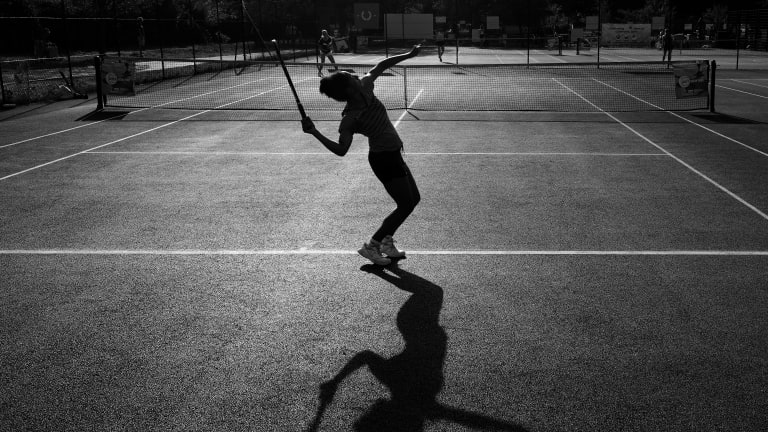Playing someone you’re supposed to beat can be a nerve-wracking experience. But it will teach you the most important skill in tennis: How to win
By Jul 26, 2021pickleball
The Process: How Jessie Irvine took her tennis game to the pickleball court
By Nov 07, 2023pickleball
A trip through California’s courts reveals plenty about pickleball’s inviting and intoxicating culture
By Nov 07, 2023pickleball
PBTV Primer: What to watch for when tuning into pickleball
By Nov 07, 2023S-Hertogenbosch, Netherlands
Alexandrova, Kudermetova to meet in all-Russian women's Den Bosch final
By Jun 17, 2023ATP Stuttgart, Germany
Seeds Frances Tiafoe, Hubert Hurkacz, Lorenzo Musetti move into Stuttgart quarterfinals
By Jun 14, 2023Facts & Stats
Stat of the Day: Gael Monfils battles to first tour-level win of injury comeback at Roland Garros
By May 30, 2023S-Hertogenbosch, Netherlands
Venus Williams to play first match since January at 's-Hertogenbosch grass-court tournament
By May 30, 2023Roland Garros
Three Chinese men play at French Open, the country's first male entrants in Paris since 1937
By May 29, 2023Facts & Stats
Stat of the Day: Novak Djokovic is now 19-0 in his career in first-round matches at Roland Garros
By May 29, 2023Playing someone you’re supposed to beat can be a nerve-wracking experience. But it will teach you the most important skill in tennis: How to win
Tennis is about more than executing your shots; it also requires you to defeat someone, to make another player capitulate. This is a skill of its own.
Published Jul 26, 2021
Advertising

As you prepare for a match, take some time to clear your mind and visualize how you want to play.
© Getty Images for Fred Perry
Advertising

“You have 25 seconds between points, and your mind can wander all over the place during that time,” Greenwald says.
© Getty Images